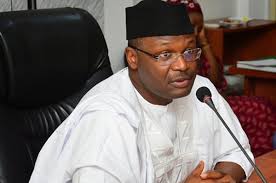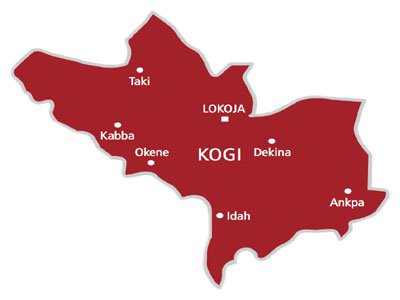Editorial
Press Freedom under threat as President Tinubu’s media crackdown raises concerns in a startling move that has sent shockwaves through Nigeria’s media landscape,

President Bola Tinubu has barred several broadcast journalists and prominent media houses from covering activities at the Aso Rock Presidential Villa.

This decision, which restricts media access to a select few outlets, has raised significant concerns about press freedom, the democratic process, and the very essence of an informed society.

The Nigerian Constitution explicitly upholds the press’s role as a guardian of democracy, empowering it to hold the government accountable to the people.
Section 22 of the Constitution states that “the press, radio, television, and other agencies of the mass media shall at all times be free to uphold the fundamental objectives contained in this chapter and uphold the responsibility and accountability of the government to the people.
“However, the recent actions by President Tinubu, which exclude broadcast journalists, camera men and photojournalists from media outlets such as GalaxyTv, BenTV, MITV, ONTV, ITV Abuja, Liberty, Vanguard, and others from covering the Presidential Villa, cast a dark shadow over this constitutional commitment.
The fact that more of the affected journalists are video/broadcast journalists underscores the severity of the situation, as the medium’s impact is not limited to print but extends to the hearts and minds of millions through still pictures, moving images and sounds.
The gravity of President Tinubu’s media crackdown is underscored by the manner in which the access tags of the affected journalists were collected on Friday by security officers, without providing any explanation for their exclusion.
This departure from best practices not only raises questions about transparency but also showcases a lack of respect for the media’s vital role in fostering an informed citizenry.
The failure of media outlets like Channels, TVC, AIT, Arise TV, STV, Vanguard, Punch, and others, which were not affected by this crackdown, to report on this significant development is equally disconcerting.
Their silence can be interpreted as an attempt to protect their interests or remain in favor with the authorities.
This division within the journalism profession, where some media houses shy away from highlighting the infringement on press freedom, further weakens the collective strength of the Fourth Estate.
This clampdown on media access has far-reaching implications for Nigeria’s democracy and the freedom of speech that it upholds.
The media serves as a vital check on the government’s power, enabling citizens to be informed and engaged participants in the democratic process.
By limiting access to a select few outlets, President Tinubu risks distorting the flow of information and creating a narrative that lacks the diversity of perspectives required for an informed citizenry.
The authorities have directed the journalists from the affected media houses to source video clips from those that have not been subjected to the crackdown.
However, this approach undermines independent reportage and raises concerns about potential information distortion.
The move raises concerns of censorship and undue control over the media, elements that are antithetical to the principles of a free press.
Censorship often leads to a manipulated version of events, stripping the public of the right to hear different voices and interpretations.
This not only compromises press freedom but also erodes trust in the government and its intentions.
History has shown that restricting media access and silencing dissenting voices can have disastrous consequences for democratic societies.
Examples from around the world serve as cautionary tales. In countries like Turkey, Egypt, and Russia, governments have tightened their grip on media outlets, leading to a decline in press freedom, human rights violations, and the erosion of democratic values.
In the Philippines, former President Ferdinand Marcos imposed martial law and curtailed press freedom, leading to a decade-long period of dictatorship and human rights abuses.
The aftermath of media crackdowns often reveals a lack of accountability and transparency, allowing governments to operate with unchecked power.
The outcry against President Tinubu’s media crackdown must be massive and resounding. Civil society, media organizations, and citizens alike must unite to defend the principles enshrined in the Constitution and the fundamental role of the media in preserving democracy.
A free press is not a privilege; it is a cornerstone of a healthy democracy that cannot be sacrificed for political expediency.
The media’s duty to inform, educate, and empower the public transcends political agendas.
The collective voice of the people, guided by the principles of a free press, can send a powerful message to the government – that an informed citizenry is a formidable force that cannot be ignored.
As Nigeria navigates this critical juncture, the preservation of press freedom and democratic values stands as a non-negotiable imperative for a just and equitable society.

Editorial
As Nigerians are awaiting passage of Nigerian Coast Guard Bill

The Nigerian Coast Guard Bill is a well thought out legislative instrument that would take the nation to the next level of securing its maritime resources like any well organized countries of the world.

The vast marine resources of the nation cannot continue to be left on an ad-hoc system whereby the Nigerian Navy and the Nigerian Maritime Administration and Safety Agency are the agencies administering the marine resources as Nigeria continue to suffer economic hemorrhage and lose billions of naira annually due to illegal exploitation of marine resources.

The establishment of the Nigerian Coast Guard is in consonance with the global best practices and would address a critical gap and enable Nigeria to fully leverage its maritime potential. The United Kingdom, India, United States of America, Australia, Canada and others, have long robust history of how Coast Guards changed positively the narrative of managing marine resources, hence, Nigeria need to wise up to join the community of well structured Coast Guard nations to its advantage.
The establishment of a coast guard aligns well with the recommendations of the International Maritime Organization, IMO, the United Nations agency dedicated to maritime affairs. The IMO guidelines highlight the necessity of having a dedicated maritime security agency responsible for implementing international standards for maritime safety and security.
On 5th December, 2024 during a public hearing on the now pending bill to “Establish Nigerian Coast Guard”, it was unfortunate that the Nigerian Navy could degenerate to selfishness by opposing the establishment of the Nigerian Coast Guard despite overwhelming advantages presented by experts in maritime industry like Dr. Olisa Agbakoba and numerous other stakeholders.
From the public hearing, it became clearer that the mandate of the proposed Nigerian Coast Guard and the statutory duty of the Nigerian Navy cannot in any way crisscross, as Navy’s duty is that of combat and defence, while the Nigerian Coast Guard is that of managing marine resources and prevention of illegal exploitation of the resources.
Objecting the bill, the Chief of Naval Staff, Vice Admiral Emmanuel Ogalla through his representative contended that there was no need for the establishment of the Nigerian Coast Guard, which the Nigerian Navy has been discharging for the past 40 years.
While we lend our strong advocacy to the establishment of Nigeria Coast Guard, integrating the Navy into the Coast Guard structure remains a viable option, like practices used by other countries. This arrangement would enable the Navy to lend its specialized skills and resources to support the Coast Guard’s operations, when needed while preserving the Coast Guard’s overall civilian mandate and organizational independence.
We urge the 10th National Assembly under the leadership of Senator Godswill Obot Akpabio to pass this very important bill into law as Nigerian Coast Guard would effectively address various maritime issues, with its primary responsibilities to include implementing maritime regulations, protecting Nigeria’s extensive economic resources, and enforcing the nation’s maritime laws, such as the Cabotage Act and the Merchant Shipping Act.
This specialized focus would enhance the enforcement of regulations, increase revenue generation, and improve the protection of Nigeria’s marine environment.

Editorial
INEC’s disturbing request for N126 billion 2025 budget

One could recall the many failures and total imperfections in elections conducted that snowballed into total conundrum of the nation’s democracy when the Chairman of the Independent National Electoral Commission, Prof. Mahmood Yakubu appeared before the Senate and House of Representatives joint Committee on INEC on 5th January to defend INEC’s 2025 budget defence.

Mahmood who was appointed by the former President Muhammadu Buhari on 21st October, 2015 has never added value to the nation’s electoral process in barely ten years, hence, the conduct of elections under his watch has always been fiasco, confusion and utter disappointment to the political players and Nigerians who have long yearned for perfect elections.

Undoubtedly, perfect election has the potential to strengthen democracy, restore confidence and throw up well-meaning Nigerians to make themselves available to contest elections in the interest of development of the nation, but as it were, INEC under Yakubu remains a nightmare to politicians and not even their political rivals during elections.
It’s no gainsaying that humongous fund has been pumped into INEC through appropriation by the National Assembly in anticipation that if funds were judiciously utilized under the items listed, in previous years, electoral processes would have been sanitized much more to the advantage of electoral players, but it’s being a sad story from year to year.
When the Bimodal Voter Accreditation System and Permanent Voters Card were introduced by the INEC, with request for sufficient funding, Nigerians were upbeat and in expectation of a new way of conducting election in consonance with the best global practices, but with huge funds committed to the initiative, there are no good testimonies till date.
The very essence of BVAS ended in conduit pipe, the same way funds committed to it under Mahmood ended. The machine which was touted to be a device which would be used to isolate fake votes from genuine ones has never been so. A development that results of one Local Government has surpassed the entire 20 Local Government Council Areas for two electioneering times under the watch of Yakubu.
From State to State during general election, there were cases of INEC staff compromising election processes without subjecting them to in-house disciplinary action. Painfully, these staff of the electoral umpire walk around free and even go to court to defend the cases.
One wonders the questionable election results each year and how INEC’s agents would defend them as principal witness when the said results became subject of litigations. We believe that the 21st century digital age should have enhanced activities of the electoral umpire and not the other way we are seeing. Conducting election in Nigeria is not a rocket science, hence, decrying complications in conducting election in Nigeria as we saw during the budget defence last week by the INEC boss was completely an attempt to confuse the lawmakers.
The increase of INEC’s budget from N40 billion to N126 billion currently before the National Assembly for legislative action is too staggering, humongous and would be a waste if this fund is approved under the leadership of Godswill Obot Akpabio as Senate President.
The 10th National Assembly, it is believed, has wise men and women in Senate and the House of Representatives and Nigerians are counting on them to save the nation of waste of hard earned resources by not approving the sum of N126 billion for INEC. This is at the backdrop of the fact that nothing good could come out of INEC under the current structure.
Also, it will be an honour done to themselves as patriotic Nigerians and elder statesmen to decline approval of N126 billion proposal, even as items raised by the INEC boss for the proposal are not only feeble, there are also unrealistic.
The parliament should be seen to be doing all it could to curb financial leakages and retaining the N40 billion budget since 2025 is not the general election year would be appropriate. This will avoid the surge of INEC’s proposal to a trillion naira in 2027 general election if the current proposal of N126 is sustained.

Editorial
The rise and rise of ‘yahoo boys’ and their activities in Kogi!

If nothing is done to curb the menace of ‘yahoo boys’ immediately, Kogi State is about being the biggest hub of yahoo boys, given their activities and the large number of boys involved. These boys have relocated to Lokoja, Kogi State capital and are living a larger than life.

They are proudly cruising around town in very expensive vehicles worth over N50 million like lexus, venza and other brand of prado jeeps and are competing with themselves. Most of them ranging from age 19 to 35, could be seen wearing ear rings with dreadlock hairs.

In Kogi State, every property owner like buildings particularly in Lokoja want to have a yahoo boy tenant as they have resources to rent without bargaining the cost. Most of them lodge in expensive hotels, while others still in school rent costly apartments in Lokoja. They have good network among themselves, i.e yahoo boys in the Prince Abubakar Audu University, Anyigba know their group in Confluence University of Science and Technology and in other tertiary institutions which is easy for the group to flock together.
Civil servants can no longer afford to pay rents as rent has gone beyond the normal ceiling because of ‘easy money’ in hands of yahoo boys which they throw around. Notwithstanding, some reasonable yahoo boys have resorted to buying properties with the money which is believed among them that they don’t deal with cash as such, but transfers.
Yahoo boys in Kogi patronises herbalists and possesses voodoo laced with human blood used as ritual or dug from a graveyard at night which they believed hynotises their victims to part away money into their account and that is what has been their modus operandi.
If any of their member loses loved one, celebrating marriage or any kind of event, they are always there either in pure white or black attire to spray money.
In fact, Kogi is in gridlock of yahoo boys! And we demand a serious clamp down, security agencies should see Kogi as another challenge and not just the Economic and Financial Crimes Commission operatives. As the number of yahoo boys is multiplying so is the consequence on the society as their activities may likely snowballed into serious insecurity.
It is no exaggeration to say that the agony of losing money in bank accounts would be a child play, but money in hands very young boys could create another arms bearing gang posing security threat to the society as some desperate politicians could hijack them.
We call on the Inspector General of Police to create anti-yahoo unit in the Nigerian Police to tackle this ever spreading menace. A stitch in time saves nigh!

-

 Security5 days ago
Security5 days agoNew Commissioner of Police in Niger, Elleman sends strong warning to criminals
-

 News3 days ago
News3 days agoAbia: LG Chairman, Iheke accused of using soldiers to detain IRS agent, claims Governor Otti’s support
-

 News5 days ago
News5 days agoKogi Governor, Ahmed Usman Ododo salutes Tinubu at 74
-

 News5 days ago
News5 days agoPlateau LP stakeholders endorses Barr Gyang Zi’s defection to APC
-

 News2 days ago
News2 days agoKogi government bans rallies ahead of Natasha’s homecoming slated for Tuesday
-

 News5 days ago
News5 days agoAkpabio pays historic visit to office of SA to President on Senate Matters
-

 News2 days ago
News2 days agoIran may secure a deal before Trump’s deadline – or face Israeli strikes in Tehran – analysis
-

 Business5 days ago
Business5 days agoFCT Minister reveals how he would aggressively pursue revenue collection, tours infrastructure





















